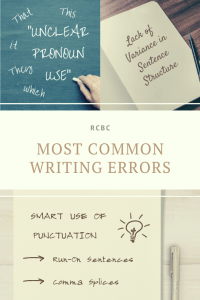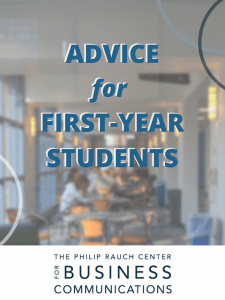By Communication Consultant Duy Nguyen (Accounting and BIS, ’22)
 As we move onto the Spring semester of 2021, sophomores in the College of Business have already successfully concluded the transition to the next chapter at college. Despite no longer having to learn about the resources available at Lehigh, sophomores now face a myriad of new challenges that are unique to sophomores. Navigating such challenges alongside the usual coursework, this year’s sophomores are also coping with unprecedented circumstances of studying in the middle of a pandemic. As an effort to provide support for sophomores, this article will delve into various suggestions specifically pertaining to the second year, curated by the staff at RCBC.
As we move onto the Spring semester of 2021, sophomores in the College of Business have already successfully concluded the transition to the next chapter at college. Despite no longer having to learn about the resources available at Lehigh, sophomores now face a myriad of new challenges that are unique to sophomores. Navigating such challenges alongside the usual coursework, this year’s sophomores are also coping with unprecedented circumstances of studying in the middle of a pandemic. As an effort to provide support for sophomores, this article will delve into various suggestions specifically pertaining to the second year, curated by the staff at RCBC.
Arguably, the most difficult decision for sophomores, especially at this point in the semester, is to select a major. While some students might have already picked a major before coming to Lehigh, the vast majority of students are still at a crossroads and struggling with weighing the pros and cons of each option. Our first advice is to take advantage of what you learned in your introductory courses. Lehigh’s curriculum has been designed with an aim to provide students with preliminary exposure to every business major available. Therefore, it would be in your best interest to include courses from each field of study in your schedule. Doing so is the best way to understand the focus and requirements of all majors.
These introductory classes will provide you with an invaluable opportunity to establish relationships with your professors. Attending office hours with your professor will give you the opportunity to have an in-depth discussion regarding career paths and the major selection process. Not only will they bolster your performance in the course, but you will also learn the details of the major’s numerous specialized tracks and how they align with your interests. Oftentimes, professors have vast experience in industry and from their academic career and can provide valuable advice.
Outside of the classroom, it is highly beneficial for sophomores to attend the various events organized by the College of Business, business clubs, and the Career Center. The most important events would be major orientations, where representatives and professors from each department provide an in-depth overview of course requirements and career opportunities offered by each major. These sessions are also the perfect opportunity to ask questions of both professors and upperclassmen; oftentimes, they can offer unique perspectives, personal insights, and advice for their major. Additionally, networking and career events can be incredibly beneficial, giving students the chance to meet Lehigh alumni, thereby gaining an understanding of a major’s career prospects.
At RCBC, our Communication Consultants represent a variety of majors and have taken a considerable range of classes. In other words, we have had firsthand experience of what is expected of students in the introductory major courses, and thus would be able to help you with your assignments from those classes (MKT 111, MGT 043/143). We can also share our experiences with selecting a major and getting involved outside the classroom.
Get information and resources about our center at The Philip Rauch Center for Business Communication.



